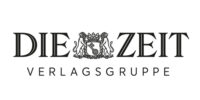
From empowerment to her own business
Written by
Happy New Year from the Young Entrepreneurs in Science Team! We are excited to kick off the year with an inspiring interview featuring Dr. Mirjam Peters, the brain behind the uma App for women’s health. Dr. Peters, who started in psychology and later became a midwife, turned her scientific know-how into a digital health app for pregnant women. She opens up about the highs and lows of her journey, showing us how scientific knowledge can lead to inspiring ventures. Dr. Peters informed us regarding the future uncertainty of the uma app, and they had to close it due to regulatory issues. In every end, there is also a beginning. Her dedication will light the way for Dr. Peters. Enjoy the reading!
Hello Mirjam, what initiated your decision to pursue midwifery training alongside your research?
The idea to study midwifery sparked when a classmate expressed interest, encouraging me to explore the field. I shadowed a midwife for a week or two, witnessing my first birth, which was incredibly exciting and captivating. This experience fuelled my desire to become a midwife, driven by the aspiration to empower women through the unique and special journey of childbirth.
Experiencing childbirth is a fundamental yet often underestimated aspect of our society. It offers deep insights into the very essence of giving birth, guiding you to prioritize crucial aspects during your delivery. Initially, the blend of hospital work and psychology studies may have seemed strange, but it proved to be a remarkably pleasant and refreshing experience. My time in Berlin evolved into focusing on my ambition. Pregnancy raises numerous questions for women, such as “What is important? What do I want?”. Empowering women to make these decisions independently during such a critical process has been my enduring passion. Whether as a midwife, in the realm of research, or through founding a company, my journey revolves around empowering women during childbirth–an exploration of doing the same thing differently.
What inspired the creation of the uma app?
Uma is like having a midwife in your pocket—a medical app catering to pregnancy and postpartum needs. Women and families often have questions, medical concerns, and short doctor appointments. With a shortage of midwives, uma bridges the gap, offering information that empowers users to make informed decisions about their health. During my research, we discovered the shortage of midwives in Germany, and I wanted to leverage digitalization to address women’s needs from a midwife’s perspective.
How does the uma app enhance the safety and autonomy of pregnant women?
Safety, for me, means knowing everything is okay and being informed when it is not. The app guides users on common concerns, allowing them to feel secure when everything is fine and pushing them to seek help when needed. Beyond physical issues, uma addresses mental health, a crucial but often overlooked aspect during pregnancy and postpartum. It helps users check their mental well-being and encourages seeking help when necessary, fostering a proactive approach to self-care.
Our society tends to focus heavily on the physical aspects of pregnancy, forgetting the significant changes in mental health. There is a lack of open discussion about various challenges, such as early pregnancy loss, and the support available is minimal. We often treat these situations as purely physical events, neglecting the mental and emotional aspects that require attention.
What are some of the most fulfilling aspects of your work?
Receiving emails and messages on social media from people expressing how uma has significantly assisted them in making decisions during pregnancy is incredibly rewarding. Knowing that uma has made a positive impact on families’ lives and helped them navigate critical decisions, is truly gratifying. On a more technical note, delving into data sheets, conducting research, and discovering new insights provide a different kind of satisfaction, especially for those who appreciate the nerdy data stuff.
Witnessing the growth and happiness of our team, as well as creating a positive work environment, are highlights for me. Working 100% remotely and finally meeting the team in person during a workshop was an interesting experience. Additionally, the positive feedback from midwives and doctors at congresses and research events reinforces the value of uma and its contribution to the field.
What inspired you to pursue this idea, and how did you gather support for it?
At first, I strongly believed that my idea was essential.
Our initial funding was secured from EFRE start-up transfer, an initiative focused on supporting university start-ups. Prior to this, we engaged in detailed discussions with them, and prepared a comprehensive business plan, exit strategies, and budgeting. However, transitioning to the investor search phase posed its own set of challenges, particularly as a product and team focused on serving women. The gender imbalance in the investor landscape remains a significant hurdle, and while having women investors proved advantageous, the broader issue of underrepresentation still persists.

What key insights have you gained from your experience? How did you connect with your co-founders and manage the teamwork?
Our journey began with an online call for collaboration. Elena responded and we decided to collaborate. We defined our roles clearly, understood each other’s goals, and divided responsibilities across design, marketing, research, and technical development. Being three co-founders facilitated smoother conflict resolution, as there was already one other person to moderate. Challenges were addressed and resolved amicably through open communication and understanding of each other’s perspectives, contributing to a positive working environment.
One significant takeaway is the importance of speed and efficiency in the start-up landscape. Next time, I would prioritize agility and a flexible approach, having learned from the initial experience. Considering bootstrapping instead of relying on investments would be a preference. In the preliminary stages, we spent considerable time on contracts and Excel sheets, but now I would emphasize the need for a smaller, quicker product release. Prototyping played a crucial role, particularly in designing the app’s features, but tailoring to individual preferences among pregnant women posed a challenge due to diverse needs and desires.
What is your top advice for aspiring founders?
It is important to adopt the “just do it” philosophy when it comes to entrepreneurship. Overthinking and trying to emulate an idealized version of a founder can be counterproductive. Instead, it is crucial to focus on finding your own unique approach and workflow, whether you are working alone or in a team.
Although there has been increased attention on female founders in the past year, the real challenge lies in securing funding. Funding discussions often have different dynamics for male and female founders. It is important to recognize that success in entrepreneurship is not limited to a single form, it is not an either-or question between profitability and impact. The entrepreneurial journey is a marathon, not a sprint. Even with a strong product, the organic growth process takes time. Additionally, for the founders, balancing work and personal life is crucial.
Your initial motivation was to empower women and provide freedom of choice. What is the roadmap for your business or personal journey moving forward?
Regulatory challenges and competition in the App Store pose difficulties for uma, a digital health application. Uma’s difference lies in its scientific foundation and medical focus, safeguarding user data on German servers. Despite higher costs, this commitment to privacy sets Uma apart from others, contributing to the complexities of navigating the market. Currently, uma’s future is uncertain due to regulatory challenges, particularly in its aspiration to be recognized as a Digital Health Application (DIGA) reimbursed by health insurance.
What happens next?
Check out our event calendar for upcoming workshops. Stay tuned for more updates, opportunities, and success stories!
Connect with Mirjam via LinkedIn.
Illustration: Anna Okvhat
Art Director: Bianca Cramer







